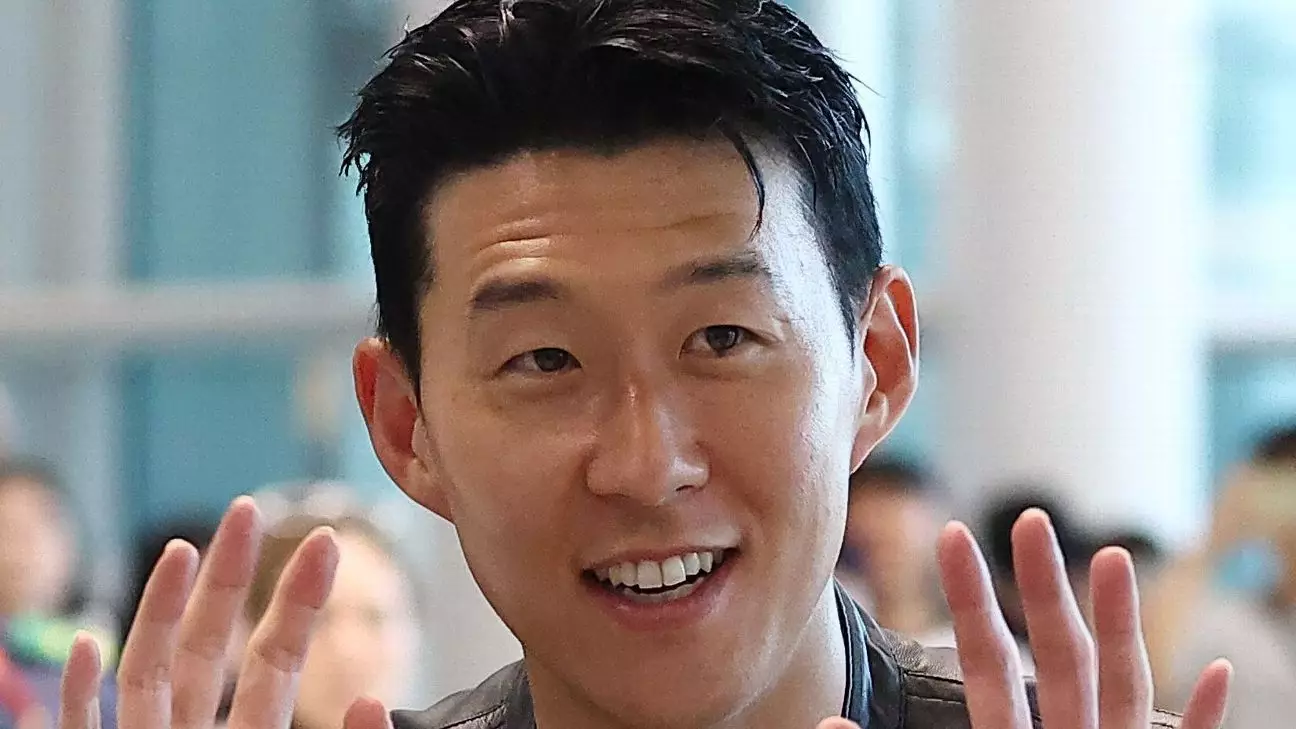Son Heung-Min’s recent move to LAFC marks more than just a transfer; it signifies a strategic pivot that could redefine his legacy and influence in international soccer. After a decade of exemplary service at Tottenham Hotspur, Son’s decision to join Major League Soccer’s LAFC demonstrates his ambition to leave an indelible mark beyond traditional European and Asian football spheres. This transition invites scrutiny and curiosity—why choose LAFC? What does this mean for his career trajectory and the global perception of Asian soccer talent?
The choice of LAFC, a club that’s rapidly growing both competitively and commercially, indicates Son’s desire to position himself as a transcultural icon. In a sport where European leagues have historically been the pinnacle, Son’s move to the United States challenges the narrative, spotlighting MLS as a truly global platform capable of harboring superstar talent. At 33, Son isn’t just chasing the next paycheck; he’s charting an influential course for Asian players and aspiring talents worldwide.
Repercussions for the MLS and Global Market Dynamics
LAFC’s aggressive willingness to pay approximately $26 million for Son reflects a paradigm shift in North American soccer investments. Historically, MLS clubs have been cautious spenders, often prioritizing domestic talent or developing players from within their ecosystems. The acquisition of a player of Son’s caliber signifies a deliberate push to elevate the league’s reputation on the international stage. It’s a statement: MLS is now a viable destination for established global stars seeking to redefine their legacies.
Furthermore, Las Angeles’s strategic positioning—crafting Son as a cultural ambassador—could intensify the league’s appeal among diverse fan bases. Los Angeles, home to the world’s largest Korean population outside Korea, offers an unparalleled platform to leverage Son’s star power not just on the field but as a cultural icon. His presence could catalyze a broader engagement with Asian-American communities, opening avenues for sponsorship, viewership, and grassroots development.
The potential ripple effects extend into the realm of sports marketing. Son’s signing might prompt other European stars contemplating their next move to consider MLS more seriously. This strategic shift could incentivize clubs across North America to chase high-profile signings, pushing the league’s competitive stature upward while fostering a globalized player market that favors more flexible, cross-continental transfers.
Soccer as a Cultural Catalyst in Los Angeles
Son’s arrival symbolizes a convergence of sport and cultural identity—a phenomenon that’s deeply rooted in Los Angeles’s multicultural fabric. The city’s vibrant Koreatown and diverse diaspora communities position LAFC uniquely to capitalize on Son’s allure. More than an athlete, Son becomes a cultural ambassador, bridging the gap between Asian soccer fans and mainstream American sports audiences.
The mentorship and camaraderie he may share with Tottenham international teammate Lloris at LAFC could translate into on-field chemistry that enhances team performance. But beyond tactics, Son’s influence could inspire a new generation of young Asian-American players, showing them that global recognition isn’t confined to traditional European powerhouses or Major League Baseball icons like Shohei Ohtani. He’s redefining the pathways to stardom, encouraging inclusivity and diversity at every level of the sport.
Moreover, Son’s presence aligns perfectly with the upcoming 2026 FIFA World Cup hosted across North America—a stage where he aims to shine as Korea’s captain. His move to the United States, therefore, can be viewed as part of a larger strategy to gain competitive momentum and global visibility ahead of the tournament, reinforcing his commitment to representing Asian football on the world stage.
Challenging the Established Soccer Hierarchy
In a global soccer landscape dominated by European giants and their financial prowess, Son’s transition to MLS signals a compelling challenge. It questions the long-held assumption that meaningful international influence is solely rooted in elite European club football. Son’s option to step into an emerging league with aspirations to grow on and off the pitch reflects a broader re-evaluation of where football careers can flourish outside traditional power centers.
This bold move positions Son as a trailblazer—not merely aiming for personal success but heralding a new era in which the game’s global reach is more democratized. For aspiring Asian players, it validates their ambitions: talent, charisma, and strategic choices matter, regardless of the conventional European pathway. The narrative Son helps craft could inspire countless others to consider destinations that combine competitive play with cultural significance and community impact.
By redefining what it means to be a global soccer icon, Son Heung-Min is not just moving continents; he’s shifting perceptions and expanding the boundaries of success in the sport. His journey underscores an empowering message that football’s true strength lies in its universality—uniting diverse cultures, elevating local leagues, and inspiring millions to dream bigger.

